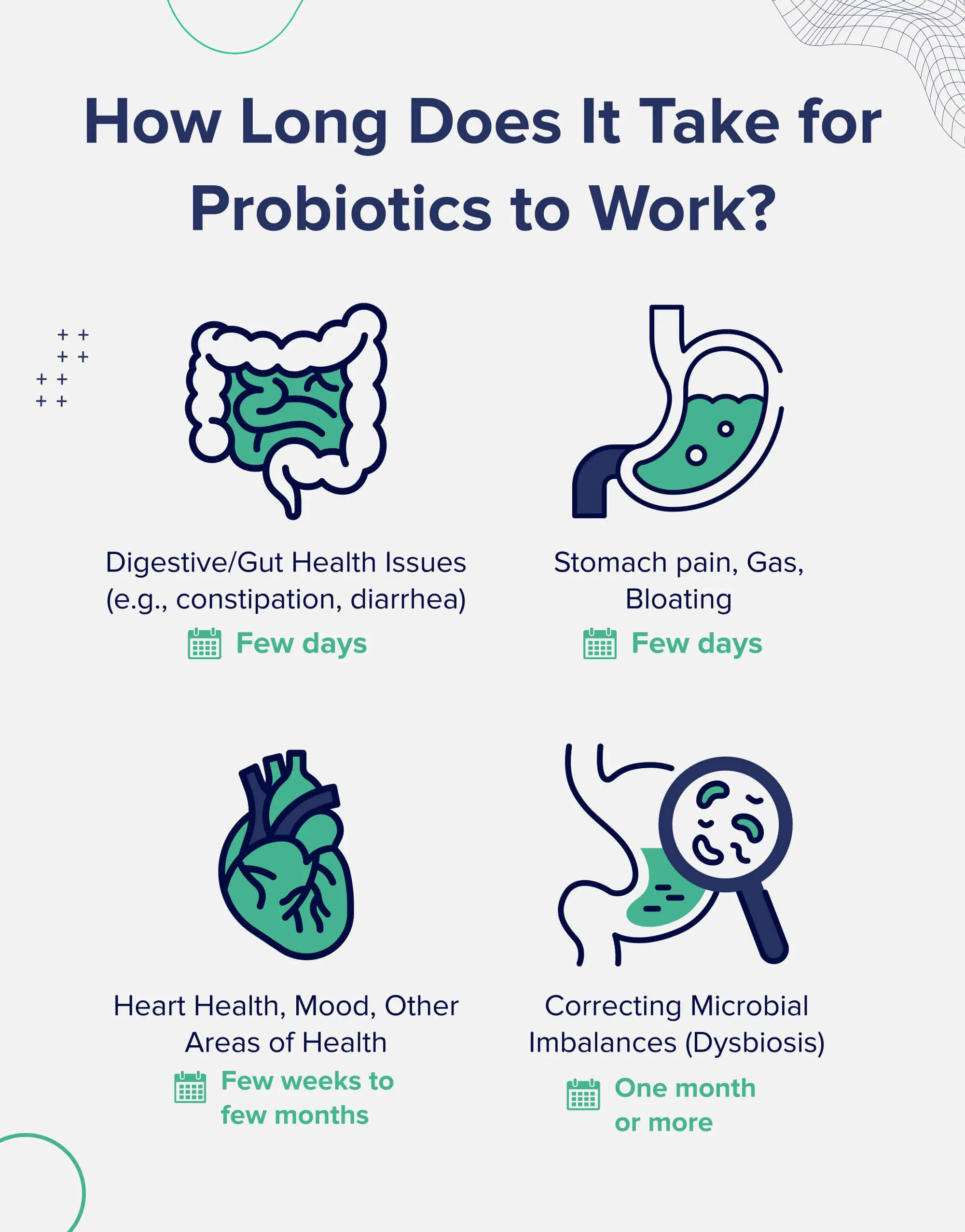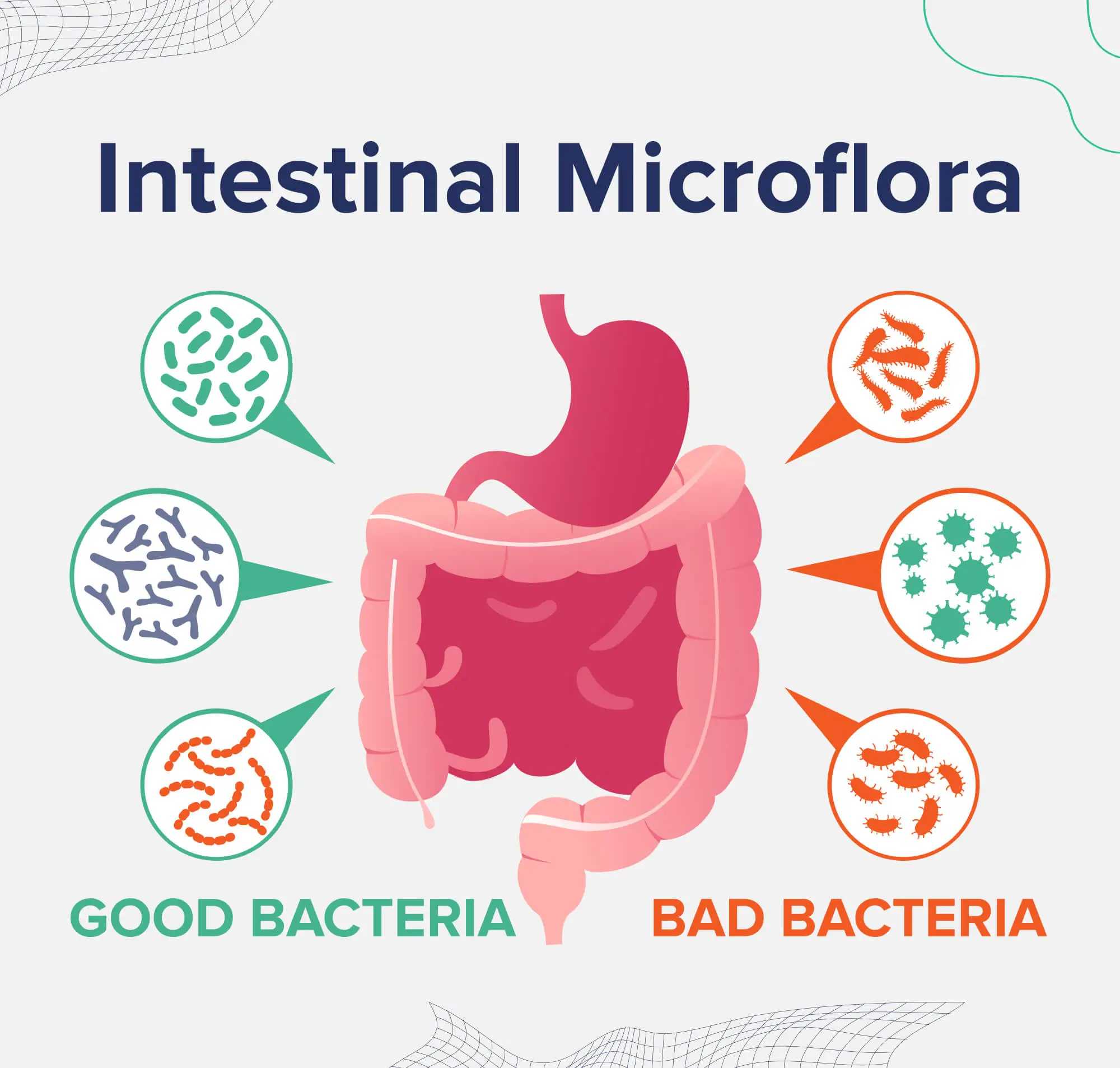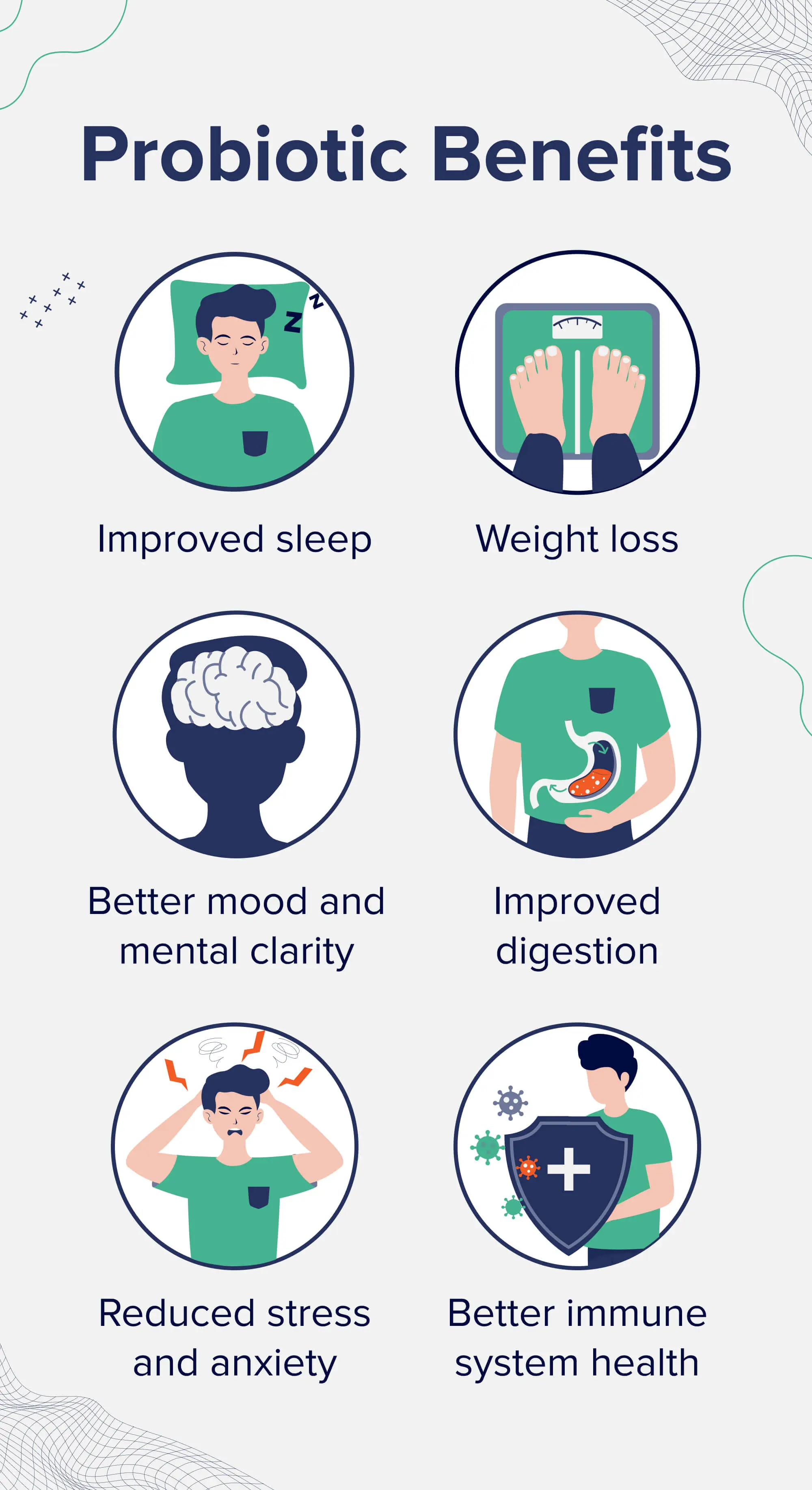Try our favorite, clean protein powder: See our top pick →
Try our favorite, clean protein powder: See our top pick →
This post contains links through which we may earn a small commission should you make a purchase from a brand. This in no way affects our ability to objectively critique the products and brands we review.
Evidence Based Research To fulfill our commitment to bringing our audience accurate and insightful content, our expert writers and medical reviewers rely on carefully curated research.
Read Our Editorial Policy
If you’ve read up about the benefits of probiotics, know all about why you should have a healthy microbiome, and have finally bit the bullet and purchased a month’s supply of probiotic supplements, you may wonder when exactly they should start working.
This is a valid question that many people have, as you can’t easily tell what your little gut bugs are up to inside your intestinal tract.
In this article, we’ll answer this question the best we can (annoyingly, the short answer is that it can depend on your individual circumstances). But if you have digestive problems, you’ll probably notice the benefits sooner than someone using probiotic supplements to support other areas of health—let’s dive into the details.
Depending on your health status, you may experience benefits from probiotics in as little as a few days or as long as a few months.

You will likely see benefits quicker if you take probiotics to correct digestive or gut health issues like constipation, diarrhea, stomach pain, gas, or bloating.
Conversely, if your stomach and digestion are already in tip-top shape and you’re taking probiotics to support heart health, mood, or another area of health, it may take longer to see any improvements.
For example, one study found that combining probiotics with rehydration therapy reduced the duration and frequency of infectious diarrhea in a mere two days.
Another study of IBS (irritable bowel syndrome) patients found that supplementing with the probiotic Saccharomyces boulardii improved IBS symptoms within four weeks.
When it comes to correcting microbial imbalances (known as dysbiosis), most studies use a trial period of one month or more. Research shows that one month is sufficient to correct dysbiosis and populate the gut with healthier microbes.
However, that does not necessarily mean that noticeable health benefits are coming simultaneously. Your gut microbiome might be getting healthier, but it still can take time to see results.

The most prominent and immediate signs that a probiotic is working are related to digestion and gut health. Within days or weeks, you may experience improvements in:
This is because the probiotics are starting to flourish and thrive (in an ideal situation), creating a healthy gut microbiome. This also includes reducing dysbiosis—a buildup of harmful bacteria with insufficient good gut flora.
Over time—in the weeks-to-months range—you may experience non-digestive-related benefits from taking probiotics.
Although the results can vary widely, some potential benefits over months-long periods may include:

For a list of conditions that probiotics have been shown to help clinically, check out this list from The World Gastroenterology Organization Global Guidelines, which includes specific strains of probiotics and recommended doses.
It’s generally recommended to take a probiotic supplement for 6 to 8 weeks before assuming it doesn’t work for you. After that, take a look at the following section and see if any of these apply to you and your probiotic regimen.
There are many potential reasons why your probiotic is not working.
As a quick aside, you may not notice physical or mental health benefits, but that does not mean that you don’t have a healthier microbiome that is improving your health in other ways. The only way to really know how a probiotic is affecting your gut microbiome is if you did stool testing before and after taking it.
That said, here are some reasons why your probiotic may not be working:
The probiotics you take can vary depending on your health situation or goals. Some of the best probiotic supplements for different uses can be found in these articles: Best Probiotics for Men and Best Probiotics for Women.
Here are a few of our top favorites for women looking for probiotic supplementation:
For men looking for a probiotic, try one of these:
Many people anecdotally report that probiotic supplements can reduce their symptoms of bloating within days. However, everybody is different and it may take shorter or longer for you. Note that sometimes probiotic supplements can increase bloating at first, especially if you are not used to consuming probiotics or fermented foods.
If you are prone to digestive problems, you may know that a probiotic is working relatively quickly. Within days, people have reported improvements in symptoms like constipation, diarrhea, gas, and bloating. Over time, you may experience benefits related to sleep, mood, mental health, metabolic and cardiovascular health, and a reduction in vaginal or yeast infections. However, this can take weeks or months.
The short answer is that you can’t. Do not try to take double or triple doses to make your probiotic “work faster.” One thing you can do is add food sources of probiotics and prebiotics into your diet. Probiotic-rich foods are fermented foods, including sauerkraut, kimchi, natural pickles, tempeh, miso, natto, and kombucha. Adding these natural probiotics can help diversify the bacteria types in your gut.
Prebiotics are certain types of fiber that allow the good bacteria in your probiotic to take hold and proliferate in the gut. Prebiotic-rich foods include apples, onions, garlic, Jerusalem artichoke, barley, greenish bananas (less ripe), and cooked-then-cooled potatoes.
You can also make your probiotics work more effectively by following the manufacturer’s instructions exactly. Some research suggests that some probiotic strains are more effective when taken on an empty stomach or just before a meal with a small amount of fat.
The available research suggests that probiotics survive best either on an empty stomach or with a small bit of fat-containing food (like at the start of a meal). However, this can vary depending on supplement capsule type and bacterial strains. Overall, taking probiotics is best at a time when you can reliably remember to take them, as consistency is key when it comes to probiotics.
If you take a high-quality probiotic supplement every day, you might experience beneficial effects on your digestive system. Some other potential benefits of probiotics include improved immune system function, skin health, mental health, and heart health. However, the results can vary widely depending on the certain probiotic strains you take and your overall health status.
Subscribe now and never miss anything about the topics important to you and your health.